“Grief is the price we pay for love, and when you feel the weight of the grief we are all feeling right now, you recognize just how much love lived in the one you are grieving.” These words were shared by Proctor’s counselor, Kara Kidder, during an informal gathering for faculty and staff Tuesday morning in the wake of longtime forestry faculty member Dave Pilla’s sudden passing. Just as Proctor’s Maintenance Department approaches the tireless clean up of downed trees from Tuesday night’s microburst that ripped through campus, the path to healing for our community will take time.
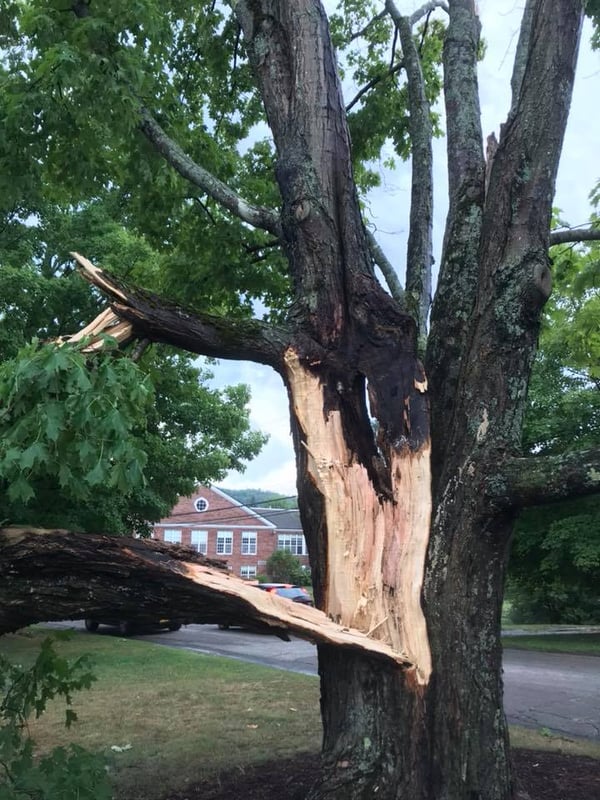
We each bring our own unique experiences with death to our community. For some, especially those young faculty brats who idolized “Sugar Dave”, this is their first real exposure to the painful realities of death. For most, we have had far too much “practice” grieving the loss of those close to us. Unfortunately, grieving is the one realm of our lives where repetition does not result in us becoming better at it. Each time we lose a loved one we hurt, we struggle, we bargain, we drive ourselves crazy with “what if’s”, we look around and wonder how we can take that next step forward.
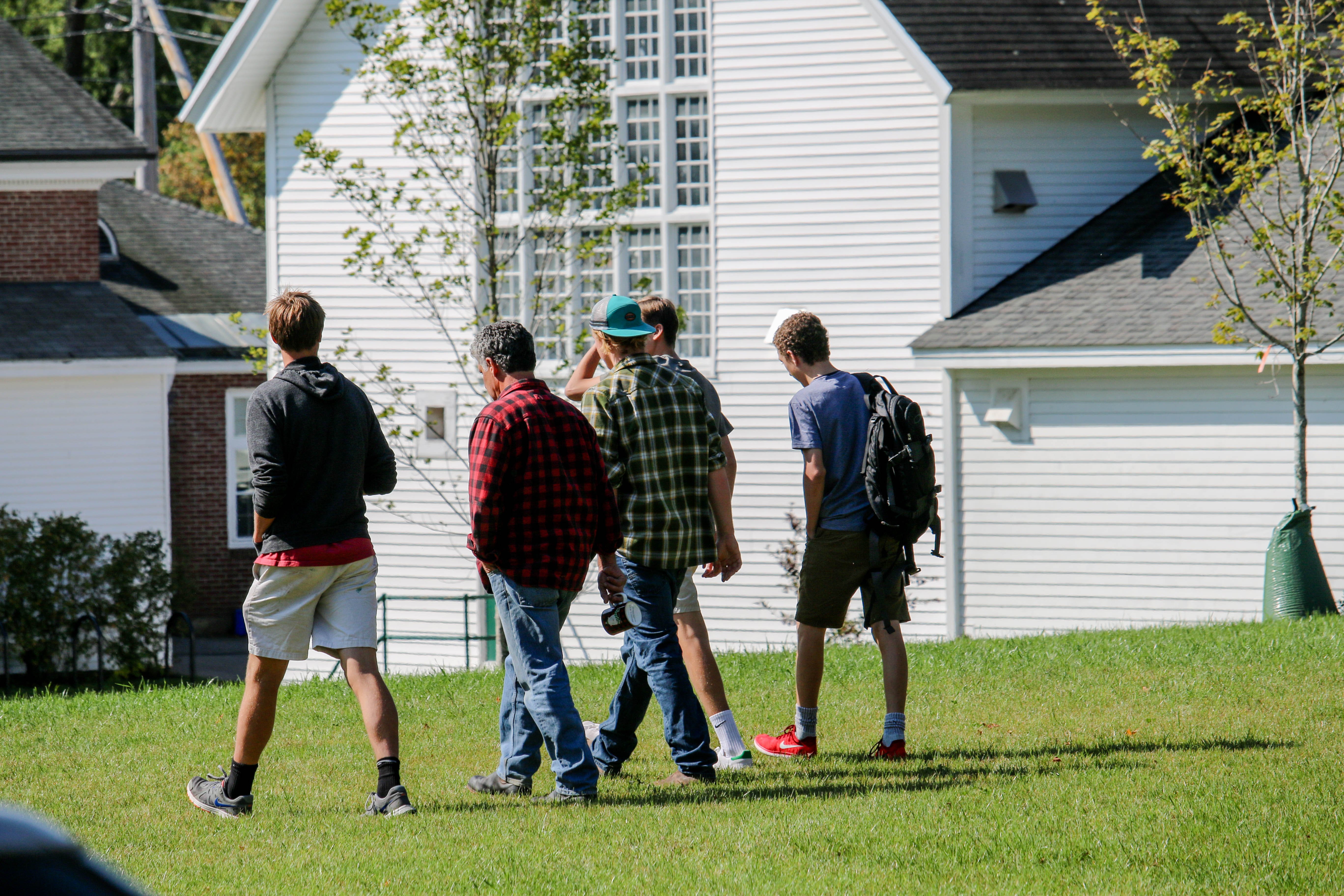
As the cause of Dave’s passing has emerged, our grieving process has deepened. His family has encouraged us to share that Dave survived for much of his life with mental illness; an invisible struggle to almost all of us. We each wanted to be a little more like our hero (who else could pull off wool pants and red plaid shirts on a daily basis?), but we saw only one side of Dave’s complex soul and did not know the fullness with which his daily, internal battle consumed him. His illness led him to take his own life Sunday afternoon. As painful as these details are to share, we believe it is critical for our community to understand the complex circumstances of Dave’s struggle and passing.
While national awareness of suicide spikes periodically throughout the year when notable celebrities succumb to their illness, the reality is suicide touches far too many communities on a daily basis. We must help create consistent awareness, education, and support if we, as a society and as a community, are to reach those struggling with mental illness. Our hope is that we, collectively, will honor Dave’s struggle by creating safe places to talk openly about our own invisible challenges, and welcome people to present their true selves rather than only their best selves. The resources linked below are a starting place for this support.

For the past 24 years, Dave kicked off Ocean Classroom with an impassioned explanation of the adage: Ship, Shipmate, Self. The motto is more than a catchphrase, it is a code to which each student commits with the understanding that if you take care of Roseway, she will take care of you. If you take care of your shipmates, they will be there for you. As we navigate the grieving process, we must keep this mindset front and center.

Ship:
As we seek to take care of our ship (Proctor), we each have a responsibility to pick up the torch that Dave has set down; whether that be related to the sustainable management of the Woodlands, teaching Forestry and Wildlife Science students, advising, or directing the Ocean Classroom program. The comments on Monday’s blog number well over 200, each sharing a unique, yet similar message of the deep impact Dave had on our community, of how Proctor will never be the same without his presence. And while this may be true, we each have a responsibility to take care of Proctor, to steward the culture Dave stood for, and to ensure the Proctor of tomorrow has the same impact on its students as the Proctor of yesterday. If we take care of Proctor, Proctor will take care of us.
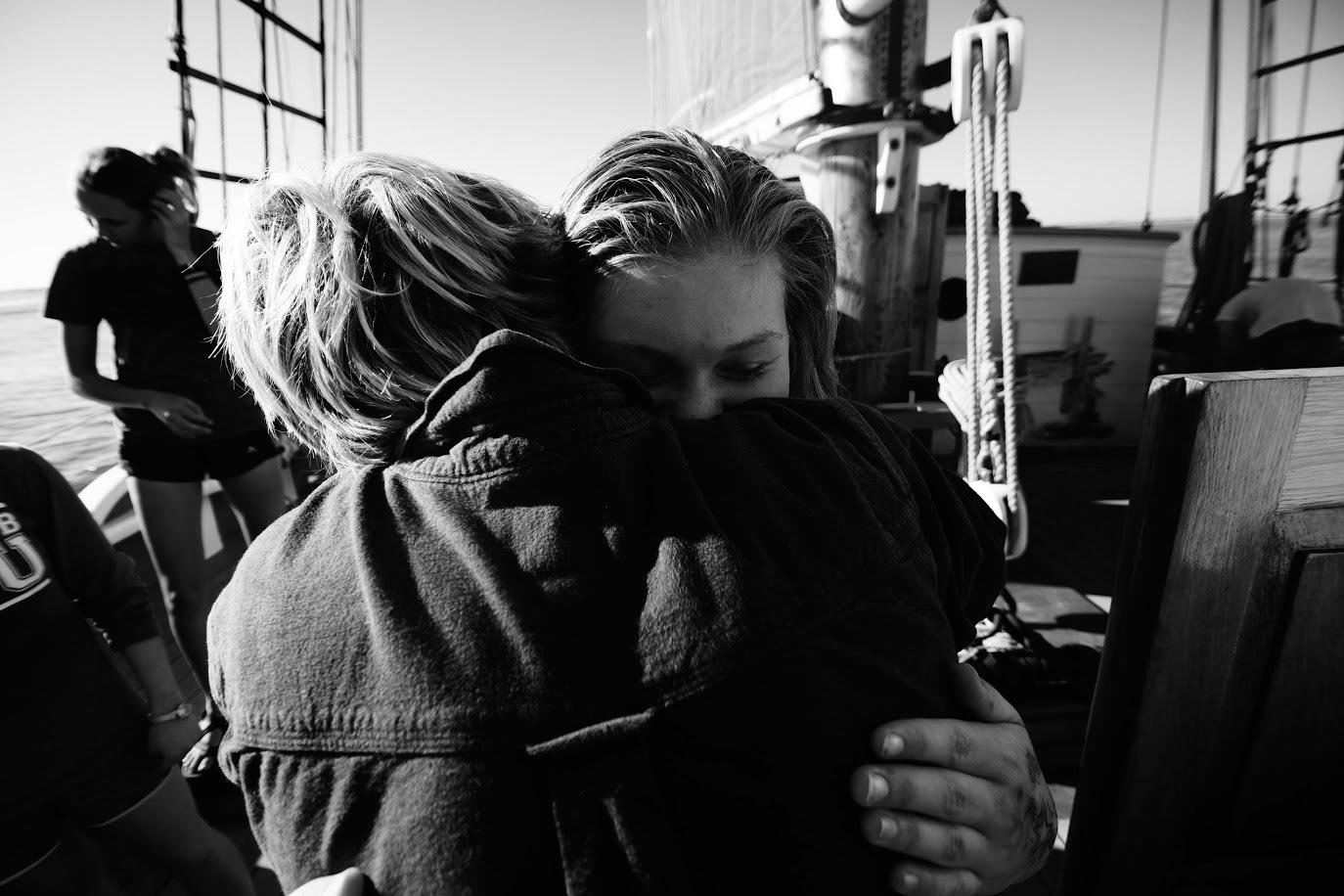
Shipmate:
Gathering in small groups, large groups, group chats over text, or even through social media, this community has done a remarkable job taking care of our shipmates over the past 72 hours. This intricate, informal support system of friends, colleagues, and strangers takes many forms, and as we work through the grieving process, it will be imperative that we be there for each other. We encourage anyone struggling at this time to utilize the resources linked above. Take care of each other. Pick up the phone and check in with each other. Surround each other with love, and never underestimate the power of simply listening to someone share their feelings.
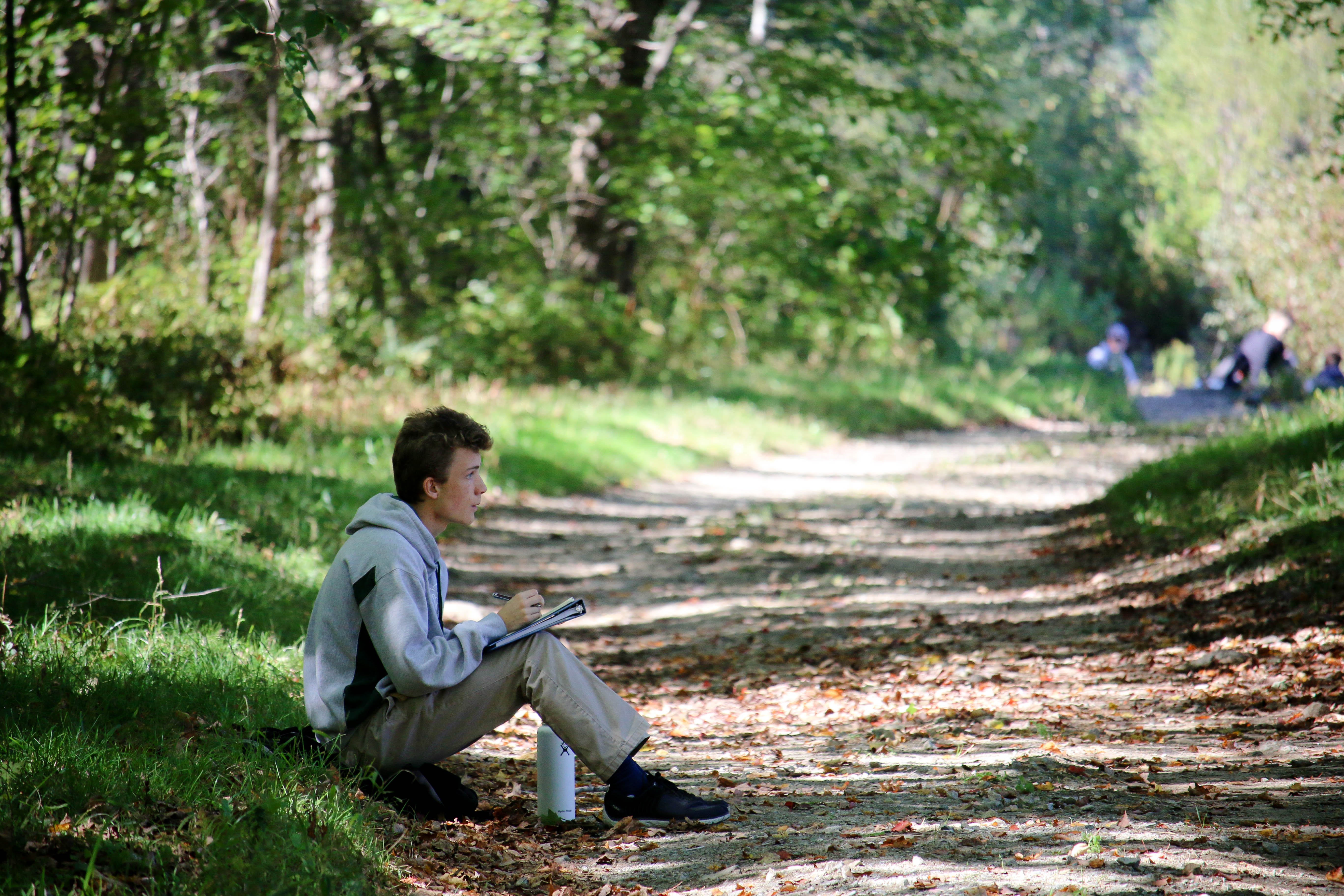
Self:
Of all the soft-skills we hope our students develop during their time at Proctor, self-awareness is at the top of the list. During the grieving process, self-awareness is critical. As Kara Kidder shared with faculty and staff yesterday, “Grieving is a nonlinear process, and each of us will linger at the different stages of grief for different amounts of time, but if you ever find yourself lingering too long, reach out for help.” Similarly, as you seek to take care of yourself during this time, understand what energizes you, what sets your soul on fire, and pursue those activities. Maybe it is going for a run or bike ride in Proctor’s Woodlands, a hike, a book, painting, journaling, or simply gathering with friends. Regardless of what refuels you, be sure to take care of yourself and do not feel guilty for finding joy during a time of sorrow.
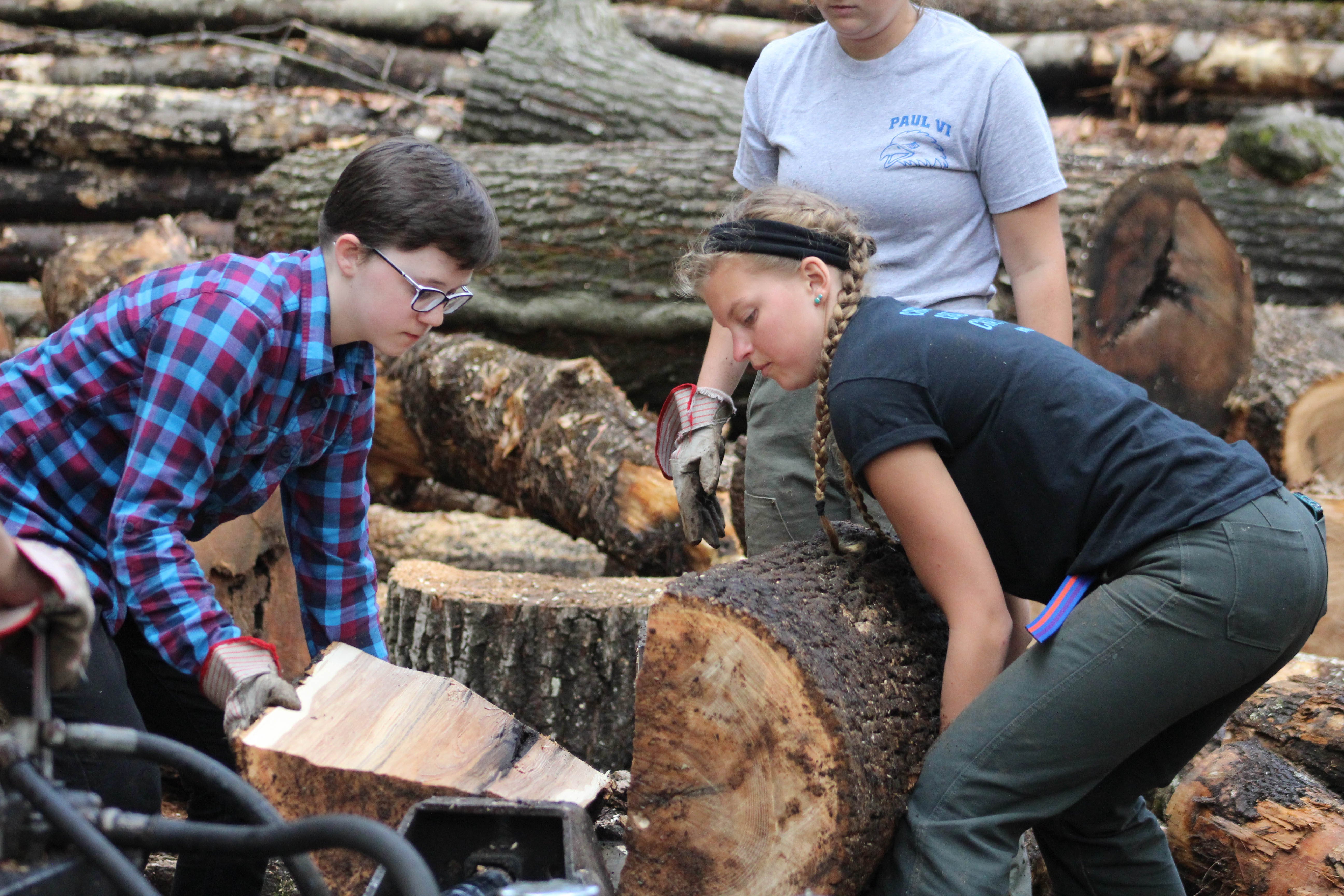
Sargent Goodchild ‘89 shared Maya Angelou’s poem, When Great Trees Fall, in a comment on the blog we posted Monday. Thank you, Sargent, for sharing this, and may we all do our best to follow Angelou’s wisdom as we walk through the ever-lightening days ahead.
When Great Trees Fall | Maya Angelou
When great trees fall,
rocks on distant hills shudder,
lions hunker down
in tall grasses,
and even elephants
lumber after safety.
When great trees fall
in forests,
small things recoil into silence,
their senses
eroded beyond fear.
When great souls die,
the air around us becomes
light, rare, sterile.
We breathe, briefly.
Our eyes, briefly,
see with
a hurtful clarity.
Our memory, suddenly sharpened,
examines,
gnaws on kind words
unsaid,
promised walks
never taken.
Great souls die and
our reality, bound to
them, takes leave of us.
Our souls,
dependent upon their
nurture,
now shrink, wizened.
Our minds, formed
and informed by their
radiance,
fall away.
We are not so much maddened
as reduced to the unutterable ignorance
of dark, cold
caves.
And when great souls die,
after a period peace blooms,
slowly and always
irregularly. Spaces fill
with a kind of
soothing electric vibration.
Our senses, restored, never
to be the same, whisper to us.
They existed. They existed.
We can be. Be and be
better. For they existed.







